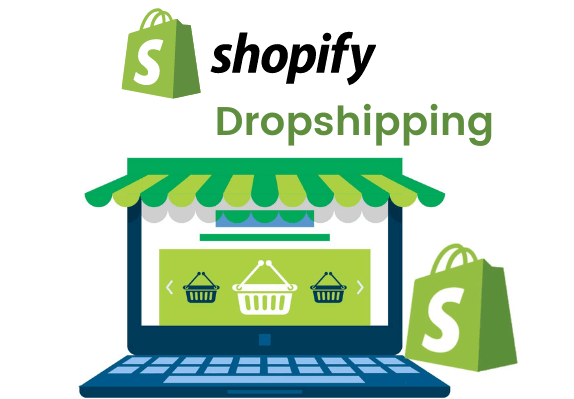In the evolving landscape of eCommerce, dropshipping has emerged as a popular business model, particularly for entrepreneurs looking to minimize upfront investments. Shopify, a leading eCommerce platform, facilitates this model through seamless integrations with various dropshipping suppliers. This guide aims to help you navigate the process of selecting the right Shopify dropshipping companies, ensuring that you set your business up for success.
Understanding Dropshipping
Dropshipping is a retail fulfillment method where a store does not keep the products it sells in stock. Instead, when a store sells a product, it purchases the item from a third party and has it shipped directly to the customer. This model allows entrepreneurs to start an online business without the need for inventory management or significant upfront costs.
Benefits of Dropshipping on Shopify
Dropshipping on Shopify offers several advantages that make it an attractive option for new entrepreneurs:
Low Initial Investment: One of the most significant benefits of dropshipping is that it requires minimal upfront investment. Entrepreneurs can start their stores without purchasing inventory upfront, reducing financial risk. This is particularly advantageous for those who are just starting and may not have substantial capital.
Wide Product Selection: With access to a vast array of products from various suppliers, dropshippers can offer diverse product lines without worrying about inventory limitations. This flexibility allows businesses to adapt quickly to market trends and customer preferences.
Location Independence: Dropshipping can be managed from anywhere with an internet connection, making it ideal for digital nomads or those who prefer remote work. This aspect allows entrepreneurs to travel or work from different locations while running their businesses.
Scalability: The dropshipping model allows easy scaling without the constraints of inventory management. As your business grows, you can easily expand your product offerings and reach new markets without needing additional warehouse space or logistics management.
Key Factors to Consider When Choosing a Dropshipping Partner
Selecting the right dropshipping supplier is crucial for your business's success. Here are essential factors to consider when evaluating Shopify dropshipping companies:
1. Product Quality
The quality of the products you offer directly impacts customer satisfaction and retention. Ensure that the supplier provides high-quality items that meet your standards. Poor-quality products can lead to customer dissatisfaction and returns, damaging your brand's reputation. To assess quality before committing, consider requesting samples or conducting thorough research on product reviews.
2. Shipping Times
Fast shipping is vital for customer satisfaction in today's eCommerce landscape. Customers expect quick delivery times; therefore, choosing suppliers with warehouses close to your target market can significantly reduce delivery times. Evaluate their shipping policies and track records for timely fulfillment to ensure that they can meet your customers' expectations.
3. Reliability and Reputation
Research potential suppliers thoroughly before entering into a partnership with any Shopify dropshipping companies. Look for reviews and testimonials from other dropshippers to gauge reliability. A dependable supplier should have a history of fulfilling orders accurately and on time. Consider checking forums or communities where dropshippers share their experiences with specific suppliers.
4. Pricing Structure
Analyze the supplier's pricing model, including product costs and shipping fees. Ensure that their pricing allows you to maintain healthy profit margins while remaining competitive in your niche. Be cautious of suppliers with hidden fees or complicated pricing structures that could eat into your profits.
5. Customer Service
Effective communication is critical in dropshipping partnerships. Choose suppliers with responsive customer service teams who can address issues promptly and efficiently. A supplier's ability to handle inquiries or resolve problems quickly can make a significant difference in maintaining customer satisfaction.
Steps to Start Dropshipping on Shopify
Starting a dropshipping business on Shopify involves several key steps:
Choose Your Niche: Identify a specific market segment that interests you and has demand. Conduct market research to understand customer needs and preferences within that niche.
Find Reliable Suppliers: Utilize directories or platforms that connect merchants with vetted suppliers fitting your niche requirements. Research potential partners thoroughly before establishing relationships with any Shopify dropshipping companies.
Set Up Your Shopify Store: Create an account on Shopify and customize your store's design according to your brand identity. Choose themes and layouts that resonate with your target audience while ensuring ease of navigation.
Connect with Dropshipping Apps: Integrate your store with dropshipping apps like Oberlo or Spocket for easy product sourcing and order management. These tools streamline operations by automating tasks such as inventory updates and order processing.
Optimize Product Listings: Import products from suppliers but customize descriptions and images to enhance engagement and SEO performance. High-quality images and compelling descriptions can significantly influence purchasing decisions.
Market Your Store: Utilize various marketing strategies such as social media marketing, SEO optimization, email campaigns, and paid advertising to attract customers effectively. Building an online presence is crucial for driving traffic to your store.
Monitor Performance: Use analytics tools provided by Shopify to track sales performance and customer behavior for continuous improvement. Regularly review metrics such as conversion rates, average order value, and customer feedback to identify areas for optimization.
Challenges in Dropshipping
While dropshipping offers many benefits, it also comes with challenges that entrepreneurs should be aware of:
Lower Profit Margins: Due to increased competition and reliance on suppliers' pricing structures, profit margins can be thinner than traditional retail models. It's essential to find ways to differentiate yourself from competitors through branding or unique offerings.
High Competition: The low barrier to entry means many entrepreneurs are vying for the same customers in popular niches, necessitating strong branding and marketing strategies to stand out in a crowded marketplace.
Supplier Reliability: Your business's reputation is closely tied to your suppliers' performance; any failure on their part can negatively impact customer satisfaction. Establishing clear communication channels with suppliers is crucial for addressing issues promptly.
Conclusion
Choosing the right Shopify dropshipping partner is crucial for building a successful online business. By considering factors such as product quality, shipping times, reliability, pricing structure, and customer service when evaluating Shopify dropshipping companies, you can forge partnerships that enhance your brand's reputation and profitability.
With careful planning and execution, dropshipping can be a lucrative venture in today's digital marketplace. By leveraging Shopify's robust platform and its ecosystem of reliable suppliers, you can streamline operations while focusing on growing your customer base and minimizing risks associated with traditional retail models.
In summary, dropshipping through Shopify offers an accessible pathway into eCommerce entrepreneurship but requires diligence in supplier selection and effective marketing strategies for long-term success. By understanding what makes good Shopify dropshipping companies stand out, you will be better equipped to make informed decisions that contribute positively to your business growth.





